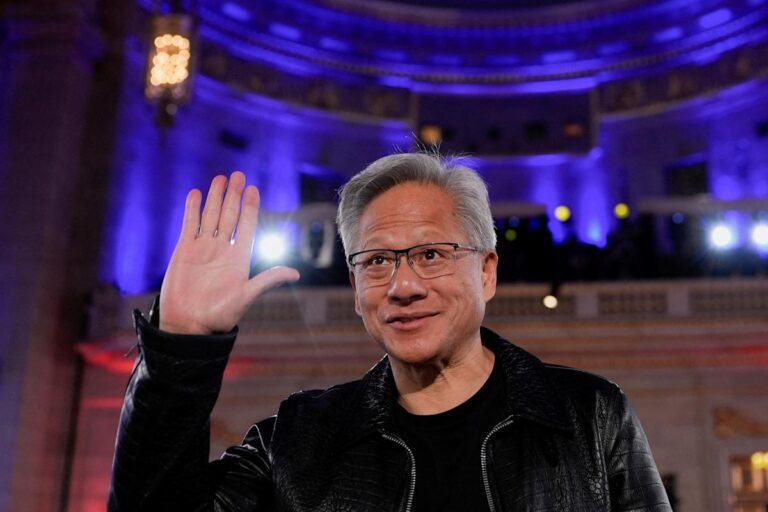Nvidia (NVDA) has cut an unprecedented deal with the Trump administration to save its China business that would entail sharing as much as $3 billion in revenue with the US government for the current fiscal year to resume sales of its H20 chips.
President Trump confirmed in a press briefing Monday that he made an arrangement with Nvidia to grant the leading AI chipmaker export licenses for the chips in exchange for 15% of their revenues from China.
“We negotiated a little deal,” Trump told a room of reporters, calling Nvidia CEO Jensen Huang “a brilliant guy.”
Multiple media outlets reported over the weekend that Nvidia and rival Advanced Micro Devices (AMD) had made such deals with President Trump, citing unnamed sources, following an initial report of the news from the Financial Times. Trade policy experts cited by the Washington Post said the agreements amounted to blackmail and violated the US Constitution’s ban on export taxes.
Nvidia did not confirm its new arrangement with the Trump administration, but a spokesperson told Yahoo Finance, “We follow rules the U.S. government sets for our participation in worldwide markets. While we haven’t shipped H20 to China for months, we hope export control rules will let America compete in China and worldwide.”
Nvidia stock rose fractionally on Monday, while AMD stock rose more than 1%.
China is one of Nvidia’s most important markets, accounting for 13% of the company’s revenue in its prior fiscal year. Nvidia has repeatedly introduced new, lower-power chips to sell to China in the face of tightening US export controls, as the government has cited national security concerns. The chipmaker began sales of its H20 chips — graphics processing units based on its prior-generation Hopper architecture — in 2024.
Nvidia got hit with a surprise ban on exports of its H20 chips to China by the Trump administration in April, costing the company billions in lost sales and sending the stock spiraling. The ban was later reversed in July, drawing national security concerns from lawmakers worried about China’s development of AI.
Wall Street analysts projected that Nvidia would recoup $15 billion in lost sales in the second half of the year after the ban was lifted, to hit about $20 billion in revenue from China for its fiscal year 2026, which ends next January — meaning the US government could get $3 billion from its deal with the company.
Bernstein analyst Stacy Rasgon said Nvidia making some revenue from China is better than none: “At the end of the day we believe it is better to allow NVIDIA (and AMD) to sell AI into China, as failure to do so effectively hands the Chinese AI market over to Huawei, and encourages the coalescence of Chinese developers around Huawei’s architecture and ecosystem (undesirable).”
Story Continues
